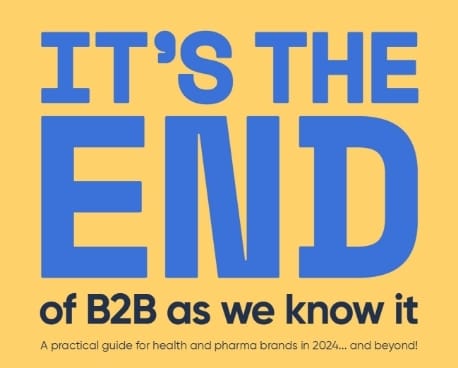
Discovery and brand recognition – How to Get Your Brand Recognised Online
In the second post of our blog series, the online patient journey, we move from research to discovery. We share with you some strategies for positioning your clinic, your website and your content as a trustworthy source of information which Google and patients will love.
In the first post in this series, we explored the research stage of the online patient journey. Our prospective patient, David, has severe back pain. By researching generic search phrases around “back pain”, he finds a few relevant blog posts and articles. They provide some useful information on symptoms, causes and possible treatments, but he decides it’s probably best to see a professional.
The articles he’s found were published by a number of practices across the UK but he’d like to see someone local. The next part of his online journey sees him researching “back pain specialists near me”.
Because of your outstanding SEO, your website ranks as a clinic near David that specialises in back pain. David finds your website and visits it to learn about your practice. David’s journey doesn’t stop here. From the research stage, through to his final enquiry about consultation, there will be numerous searches on Google. We can visualise this with the healthcare patient marketing funnel

When it comes to valuable and competitive keywords and phrases, you need to position yourself as an authority in your niche or sector
How do I Compete for Valuable Keywords?
Each stage of this funnel is highly competitive. Capturing a patient’s attention at any one of those stages could be the difference between an enquiry with you or your competitor. When it comes to valuable and competitive keywords and phrases, you need to position yourself as an authority in your niche or sector. This is referred to by Google as E-A-T. Expertise, authority and trust. It’s an essential component of the algorithm which Google uses to understand the quality of a web page.
Let’s break these three pillars down and look at how we can achieve excellence in each area.
- Expertise
- Authority
- Trust
- Effective ad copy
Expertise
Expertise is just that. Does this content creator have the credentials to back up what they’ve published online? Are these credentials and any other information to confirm this expertise on this website? As a healthcare professional with a website, your patients want to confirm that you are experts in your field. If you’re writing detailed news or blog articles about your specific healthcare area then yes, this will help with establishing online expertise.
Authority
Authority looks at who has created the content and how that relates to your overall website. Google doesn’t want speculative and unproven information surfacing for queries that could have an impact on a potential patients life. They want to ensure that the content creator is an authority in their field.
Trust
How can we trust that the information served to us by Google is accurate? Trust refers not only to the content creator but the content itself and the website. Does this website offer trustworthy content which is factually correct?
In the healthcare sector, E-A-T is incredibly important. Content needs to be created by people with the expertise and knowledge, and it needs to be kept up-to-date and current. On top of that, Google needs to understand that the information is trustworthy and authoritative. This is where we come in, speak to a healthcare marketing expert today to find out how we can help to shine a light on your authority, for search engines and for patients.
Effective ad copy
As with any form of advertising, your ad copy should be extremely compelling, with the primary aim of encouraging patients to click through to your website and take action.
This is as much a science as it is an art and involves creativity, testing, analysis and refining to achieve the best results.
We use a range of different metrics to test and measure the success of ad copy, including click-through rate (CTR), return on ad spend (ROAS), cost per lead (CPL) and cost per thousand impressions (CPM).

6 Ways You Can Improve Expertise, Authority and Trust
There are many ways you can improve your Google E-A-T score. We share a few tips with you below for strategies you can implement today.
1. Produce Great Content
Content really is king when it comes to SEO and Google. The best way to achieve a great page quality rank is to make sure you have great content. Keep it up-to-date and accurate with the latest healthcare news. Make sure you add in the date that you last reviewed and modified content. There’s no point having information on back pain that’s old and disregards the latest research and developments in the area.
2. Author Bios – Establish trust and credibility with your soon-to-be patients
If you publish articles in a news or blog section of your website, add in a short author bio and link this back to your “About Us profile page”. Within your author profile you should include links to other profiles around the web (Such as LinkedIn, hospital pages, insurance pages, verified review aggregator profiles). This adds credibility and gives a personable feel too.
3. About Us Pages
They’re all about us. Right? No. What problems do you solve for your patients? How can they trust you and how will they feel when you solve those problems? Use your About Us page to establish trust and credibility with your soon-to-be patients.
4. Quality Backlinks
AKA “links to your website from other websites”. Focus on getting good quality backlinks to increase your own website authority. For healthcare websites, you may want to look at getting backlinks from relevant publications and other websites in the healthcare sector. Think about partners and publications you could guest post for or share a report with. Get in touch with a healthcare marketing expert today, to find out more about our healthcare-specific link building packages and processes.
5. Have a Secure Site
Make sure you have an SSL certificate. That little lock in the URL bar on your browser? This helps to keep people’s data safe when they’re browsing your website, and is an important trust signal to potential patients as well as search engines.
6. Social Media
Companies sometimes shy away from social media for fear of negative reviews or bad press. In reality, if someone wants to write a negative review, they will find somewhere to write it. It’s much better to own that negativity and turn it into a positive with a considered reply, than to be left unable to respond. Having a social presence can do wonders for establishing trust, expertise and authority. Be transparent. Be honest and be seen. Your patients will appreciate that.
Unfortunately, we can’t predict future Google Algorithm updates, but there are plenty of steps we can take today to optimise our website and move patients through their online journey to your website. Follow our blog series to learn more about the online patient journey. In our next post, we look at what makes a great landing page and provide tips and tricks to ensure you capture attention and convert.
Be transparent. Be honest and be seen. Your patients will appreciate that.
Sign up to our newsletter to follow our blog series the online patient journey. In our next post, we discuss the discovery phase of the journey and provide advice on how great copy will help position you as an authority in the online space.
[hubspot type=form portal=7957704 id=c61150fa-99d9-4f4d-bcd9-123d5ab957e9]






